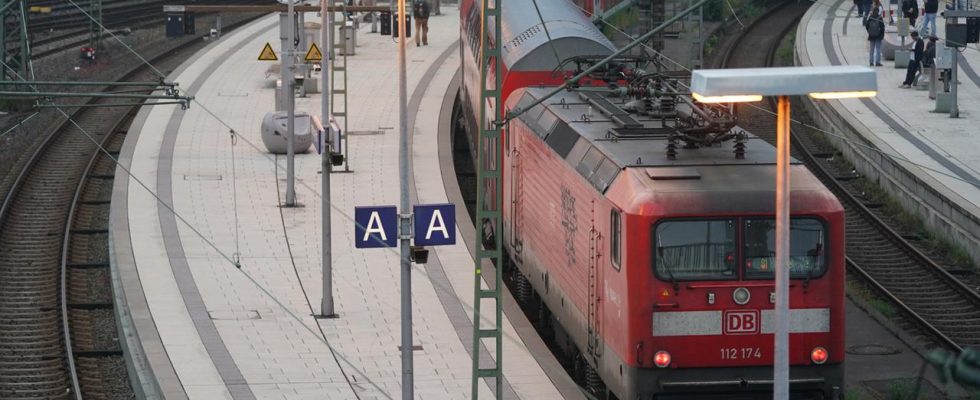After an initial rapprochement, Deutsche Bahn and the EVG trade union are continuing their fourth round of collective bargaining in Fulda today. Failure to reach an agreement could result in further warning strikes.
In the collective bargaining dispute between the railway and transport union (EVG) and Deutsche Bahn, the fourth round of negotiations is starting today in Fulda.
The group and the union want to talk there about higher tariffs for around 180,000 group employees up to and including Thursday. The talks were prepared last week at a first meeting behind closed doors. If the parties still cannot find a solution, there is a risk of renewed warning strikes or even a vote by the EVG on unlimited strikes.
Minimum wage as a first approximation
Most recently, there was movement in the wage dispute, which had been deadlocked for months: both sides cleared the sticking point of the minimum wage with the mediation of the Frankfurt Labor Court.
Around 2,000 employees had previously only received the statutory minimum wage through allowances. Deutsche Bahn has agreed to include this retrospectively in March as a base in the tariff tables. In this way, future tariff results can relate to this higher basis. After the settlement, the EVG canceled a planned 50-hour warning strike last week at short notice.
EVG: Implement demands this year
In Fulda, it should now go into the negotiations on the specific wage demands. The union wants at least 650 euros more or twelve percent for the upper income group, as well as a term of twelve months.
So far, Deutsche Bahn has offered a tax and duty-free inflation compensation premium and a gradual tariff increase totaling ten percent for lower and middle incomes and eight percent for higher incomes. With a term of 27 months, the first stage of this would not start until next year. The EVG calls for a table increase in 2023.
Strikes and failures still possible
The union is negotiating the same demands with dozens of other rail companies in addition to the railroad. It has already twice brought rail traffic in Germany to a standstill with nationwide warning strikes.
A deal with the state-owned group should also set the direction for the negotiations with the other companies. Warning strikes would still be possible there as long as a compromise is not reached everywhere. However, they would have a much smaller impact than on Deutsche Bahn.
The EVG is the larger of two unions at the state-owned group. Collective bargaining between Deutsche Bahn and the Union of German Locomotive Drivers (GDL) under their boss Claus Weselsky is only scheduled for autumn. Already at the beginning of June, however, the GDL wants to define its demands.

